About 10 years ago, Marie Smith and her partner bought a derelict rural pub in Sweffling in Suffolk, and transformed it into a flourishing campsite and pub business.
We spoke to Marie to find out what an average day at Alde Garden and the Sweffling White Horse involves, her best moments and biggest challenges.
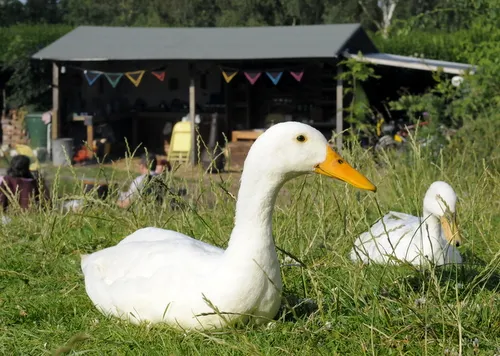
The accidental publicans
During one of our regular ‘What would we do if we weren't doing this?’ conversations down the pub, we realised that our dream – to run a campsite – could actually become a reality. I wish I could remember more about that night – perhaps the numerous ales were to blame?
And so it began. Many meetings in the pub followed, scribbling ideas into a notebook. All our best decisions have been made down the pub – which makes the unexpected twist in our tale all the more magical.
Over the following months, we renovated and sold our flats, and began scouring the estate agents on the internet for the right place to set up our business. Our ideal location was Suffolk – but with limited cash we were forced to cast our net further into less expensive areas.
It all seemed too good to be true when the White Horse Sweffling appeared on the market – it was the perfect spot and right within our price range. But on the day we went to view it, we quickly realised why the price ticket was so low. This 'former' pub had not actually been converted to a house. It was still pub, albeit a derelict one, closed for almost six years. And so the seed was planted, and truly sewn.
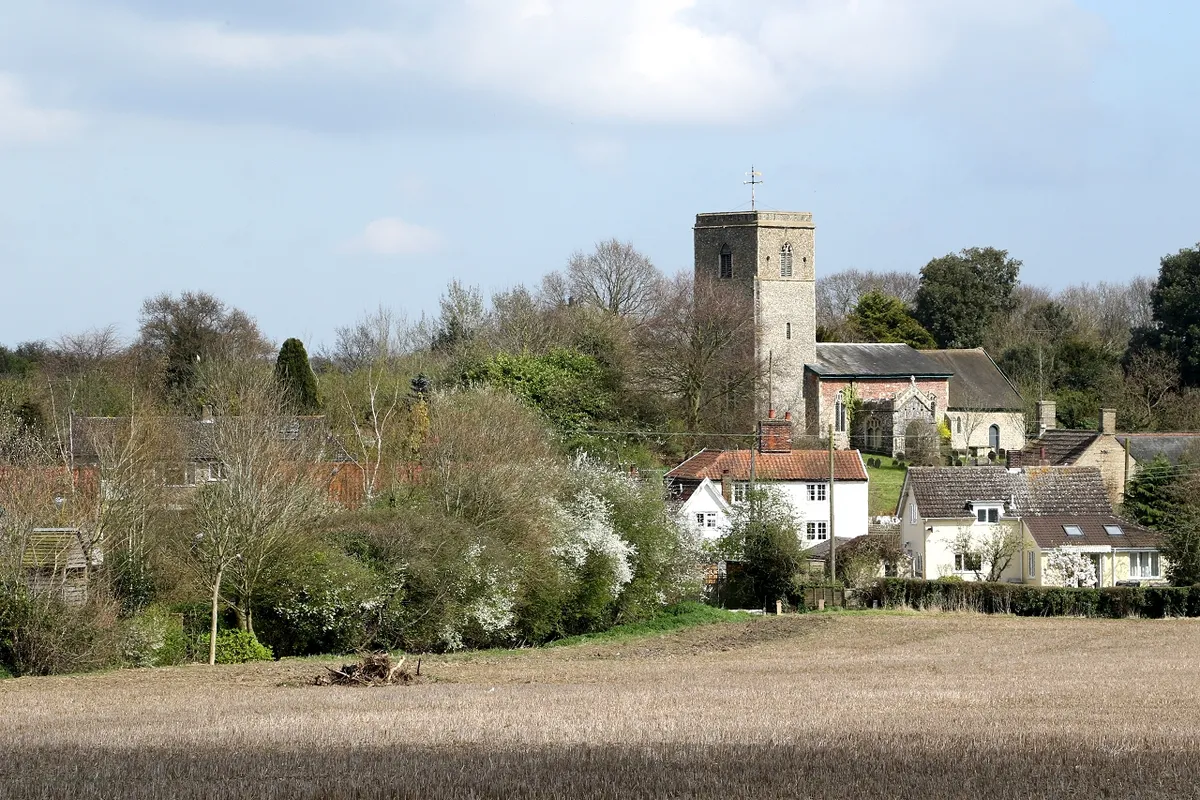
The addition of a pub to our plans fitted in so well that it only took us a couple of hours to realise it was actually the icing on the cake. It was obviously meant to be, because at the auction – exactly one week later – the hammer fell on our winning bid.
1. What does the average day as a rural campsite/pub owner involve?
A lot of cleaning! There’s a lot more behind-the-scenes work involved in both the campsite and the pub than people imagine. In our previous life we both had desk-based jobs – it’s great that our roles are so much more varied now.
An average day begins with checking emails and doing any other admin (promotional work, arranging staff, ordering etc), before starting on the more physical stuff. In the pub, there’s always casks to move, beers to tap and stock to replenish from the cellar. At the moment, we’re building a roundhouse in the garden (which will become accommodation for the campsite) and this takes up a lot of our day.
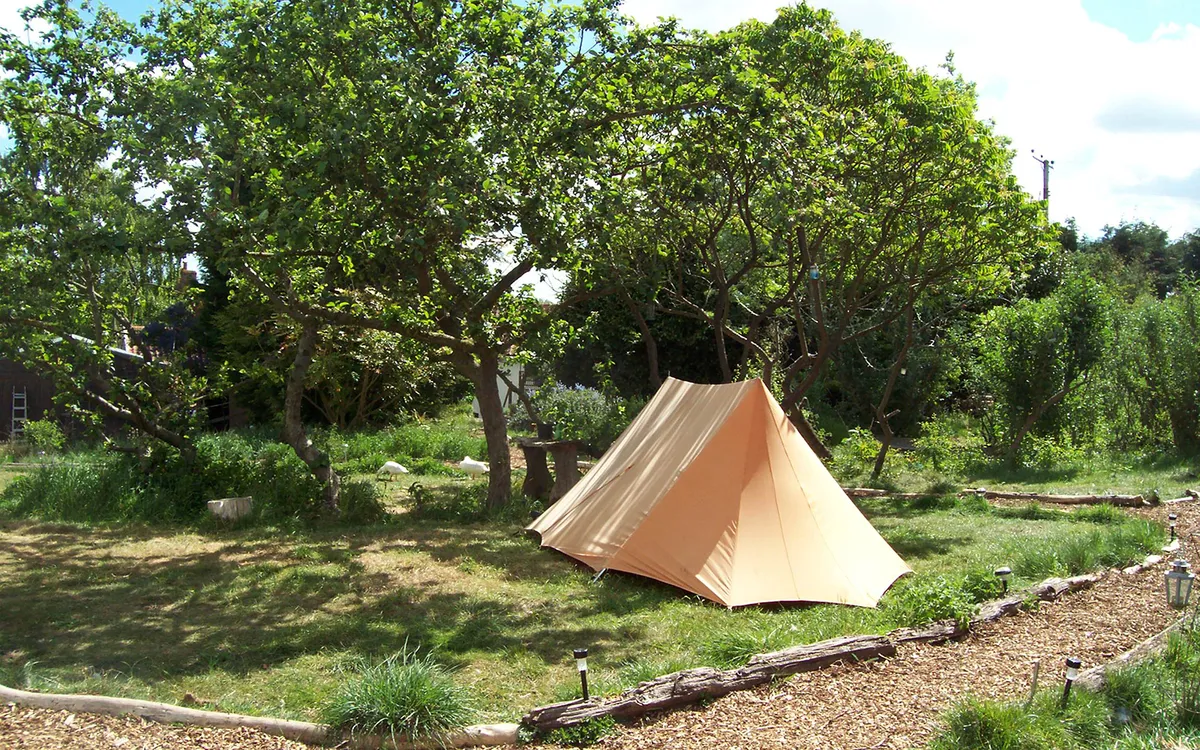
In the camping season, there are various cleaning and re-stocking jobs to do each day, and
. There’s lots of animals to care for, too – a whole plump (correct collective name, I’m reliably informed) of ducks, plus lots of chickens and a pair of friendly geese to feed and look after.
In winter, we also have plenty of outdoor work – gardening, repairing, renovating structures, and also improvements to the site. The job we seem to do most in winter though is moving wood – the pub and holiday cottage are open all year, and are entirely heated by wood. In the evenings we usually have a couple of hours to eat, shower etc. before opening the pub.
2. What’s been your best moment during the project?
The best moment – and one which will stay with me forever – happen one evening during the first couple after weeks of opening the campsite. We both went out into the garden at dusk to put the ducks to bed. Standing up at the top of the garden, looking down the slope towards the communal campfire area, we could see that a group of campers had gathered on the benches around the fire. For the previous two years of hard work, these benches had been occupied most weekend evenings by us and our friends, reflecting on a day’s work. We’d had many magic evenings there by the fire. Now the site had opened, we could see that the magic was continuing – gentle conversations, strangers getting to know one another and sharing a glass of wine by the flames – it was such an amazing feeling.
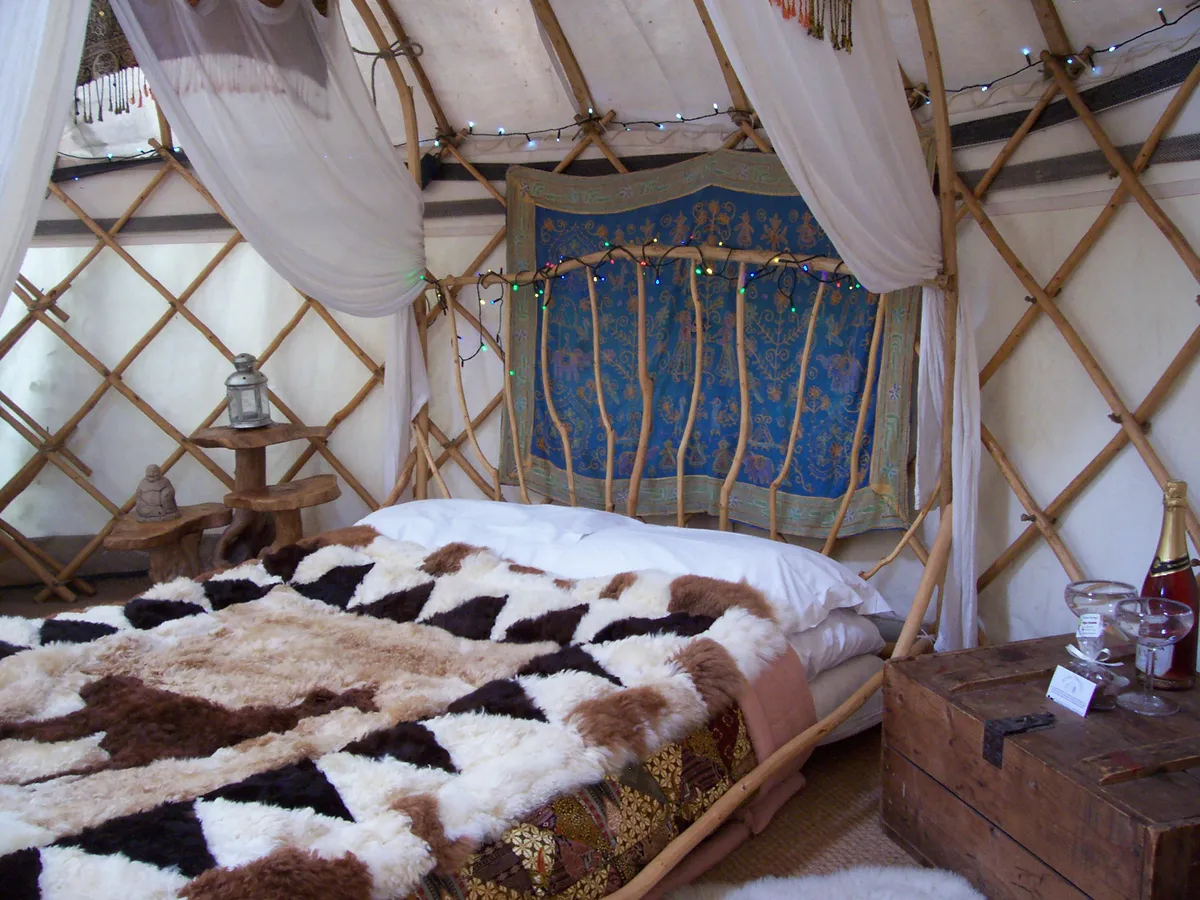
3. What was your biggest challenge?
The biggest challenge has definitely been building the roundhouse. We didn’t set out to build it ourselves, but when we were let down by a professional we decided to take it on. So, armed with a small library of books on natural building, we gathered a small team of workers and embarked on what we thought was going to be a one-year project.
Two years later, we are finally nearing completion, but it has been a lot more demanding than we imagined. On a positive note, though, all of us have gained so much practical experience in so many aspects of natural building, making it a very worthwhile journey – and we’re really looking forward to the magical moment of welcoming our first guests into our gorgeous hobbit-style cottage.
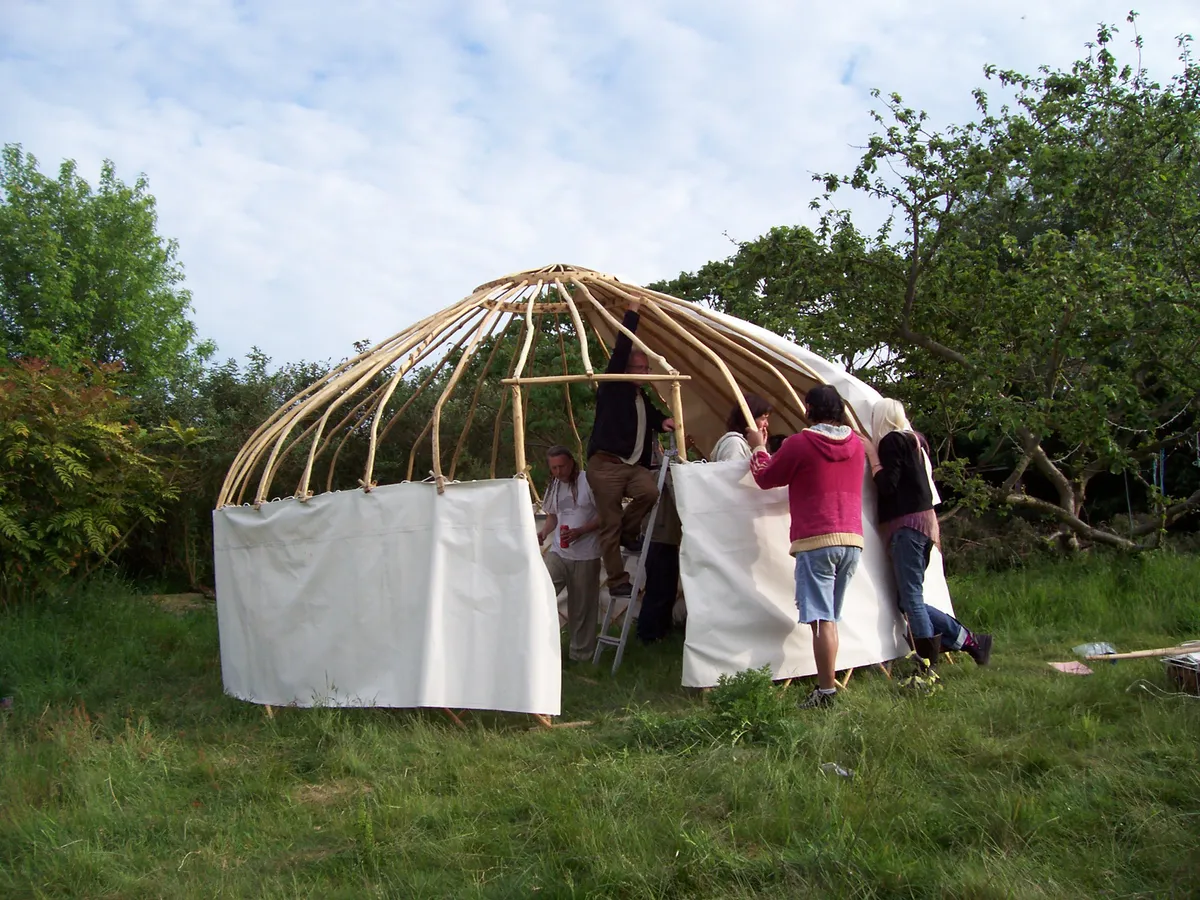
4. What’s your favourite place to escape to in the area?
Walking is one of my favourite activities, and I’m lucky enough to have beautiful scenery all around me. All my favourite views – woodland, fields, open grassland, winding footpaths – are literally right outside my door, so I walk regularly. An early evening circular walk from here will often involve encounters with owls, deer and all sorts of creatures snuffling in the undergrowth. If I were to choose a favourite spot further afield, it would have to be Dunwich – with its beaches, woodlands and stunning purple heathlands.
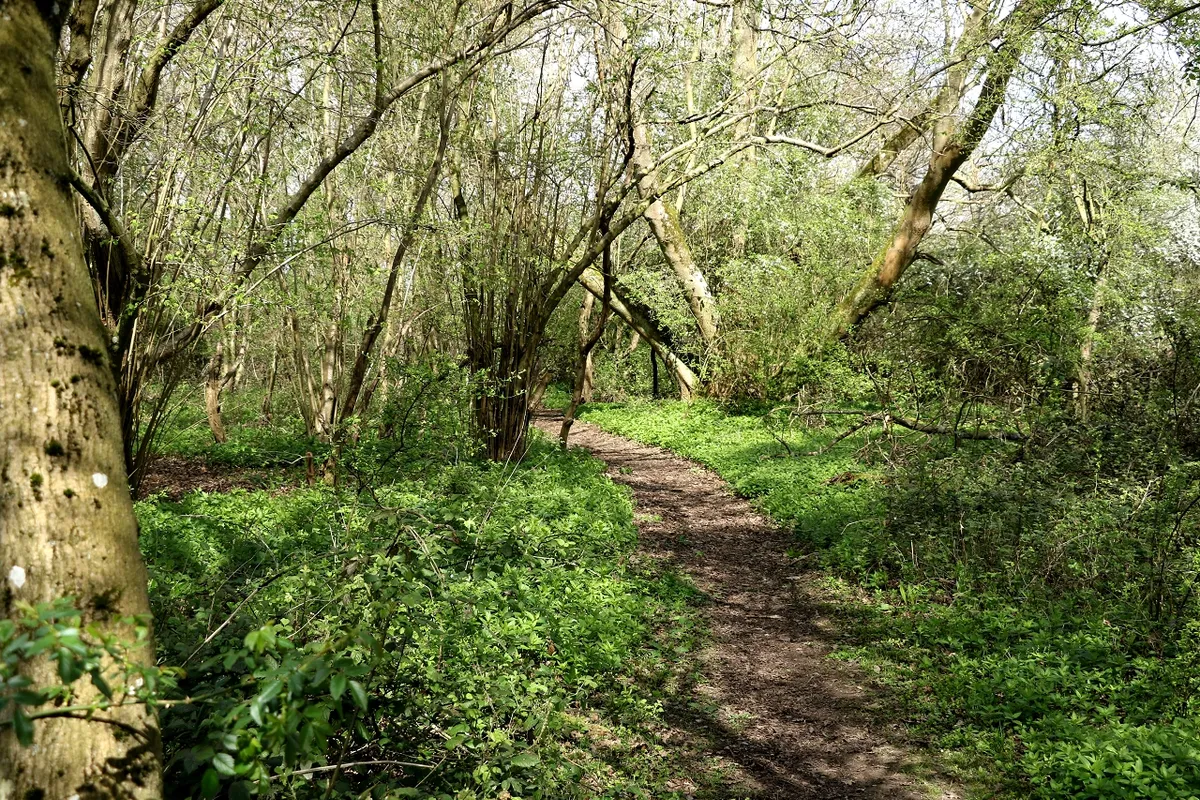
5. If you could be a British animal, what would you be?
I would be a deer, for sure. They live in small groups and are often seen gracefully galloping across fields from one patch of woodland to another.
6. What advice would you give to anyone planning to take on a similar venture to yours?
The best bit of advice I can give is to be true to your passion. To explain this, I will take you back in time to 2008 – the year we bought our little patch of overgrown wilderness. I’m a chatty person and like discussing ideas with people – and at the time, my entire life was devoted to creating the campsite of our dreams, so I talked about little else. Some understood our vision, but many people advised us against our intended style. Because campsites are often open fields and organised straight lines, it’s easy to think that this is what campers want. So, when I described our vision of winding pathways in between shrubs, trees and wildlife areas, I was often told that it would be better to landscape the site and make some tidy garden beds alongside well-kept grassed spaces.
But we stuck to our vision, and I’m really pleased we did. Not only did it turn out that there are a lot of campers who, like us, enjoy a bit of seclusion and the feeling of wild camping, but, most importantly, it has made the business such a pleasure to run. Our aim of creating the kind of campsite (and pub – we used the same ethos when creating that aspect too) we’d like to go to ourselves has meant that our entire working lives are spent somewhere lovely with like-minded people.
Learn more about Alde Garden and the Sweffling White Horse.